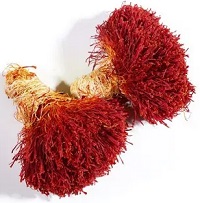
Sensitive skin is a common condition that affects many people. It is characterized by skin that is easily irritated by various factors such as environmental triggers, certain skin care products, and even lifestyle habits. This skin can manifest in a variety of ways, including redness, itching, dryness and breakouts.
Understanding the causes is important to properly treat and control the condition. Genetic factors, environmental triggers, skin care products and lifestyle habits can all contribute to the development of sensitive skin.
Treating sensitive skin is critical to prevent further irritation and discomfort. This includes avoiding triggers, choosing the right skin care products, developing a gentle skin care routine and changing lifestyle habits. Natural remedies and medical treatments can also be effective in treating sensitive skin. To maintain healthy, comfortable skin, it is important to understand and treat the causes.

Sensitive Skin (Common Symptoms)
This skin can manifest in different ways, and symptoms can vary from person to person. Some common symptoms are:
Redness and inflammation:
Sensitive skin can be prone to redness and inflammation, especially in response to certain triggers such as heat, cold, wind, or skin care products. This can also be aggravated by conditions such as rosacea or eczema.
Itching and dryness:
The skin may feel itchy or dry, especially after contact with irritants or allergens. This can be especially problematic in the colder months when the air is drier and the skin can become more irritated as a result.
Tightness and discomfort:
Sensitive skin can feel tight or uncomfortable, especially when exposed to certain triggers like hot water or harsh skin care products.
Breakouts and acne:
This skin can be prone to breakouts and acne, especially when exposed to skin care products or other irritants that clog pores or cause inflammation.
Sun sensitivity:
People with sensitive skin are more prone to sunburn or other sun-related skin damage. This is because their skin is more easily irritated and more prone to inflammation. People with sensitive skin must wear sunscreen and protective clothing when outdoors.
Causes of Sensitive Skin
Several factors may contribute to development, including:

Genetic factors:
Some people are more prone to sensitive skin simply because of genetic factors. For example, people with fair skin or a history of eczema or allergies may be more prone to sensitive skin.
Environmental factors:
Environmental factors such as pollution, weather changes, and UV radiation can contribute to the development of this skin. In addition, contact with certain chemicals or irritants such as harsh soaps or detergents can also cause the skin to become sensitive.
Skin care products:
Certain skin care products can also contribute to the development. These include products that contain harsh chemicals or fragrances, or products that overly irritate or dry out the skin.
Lifestyle habits:
Certain lifestyle habits can also contribute to the development of this skin. For example, smoking, poor diet and excessive alcohol consumption can affect skin health and contribute to skin sensitivity. Stress and lack of sleep can also have a negative impact on skin health.
How to Treat Sensitive Skin
If you suffer from this skin, there are several ways to treat and control the condition. Here are some effective strategies that can help you:
Avoiding triggers:
The first step in treatment is to identify and avoid triggers that can irritate your skin. This may include contact with harsh chemicals, fragrances or other irritants. You may also need to adjust your diet and lifestyle to reduce inflammation and prevent flare-ups.
Choosing the right skin care products:
Choosing the right skin care products is critical to treating this skin. Look for gentle products that are free of harsh chemicals, fragrances and other irritants. Consider using natural or organic products that are suitable for this skin.
Develop a gentle skin care routine:
It is important to develop a gentle skin care routine. This can include washing your face with a gentle cleanser, using a moisturizer cream for sensitive skin, and avoiding harsh exfoliants or other abrasive products.
Natural remedies:
Several natural remedies can help soothe and calm sensitive skin. These include aloe vera gel, chamomile tea or oatmeal as natural anti-inflammatory remedies. You can also use essential oils like lavender or chamomile to soothe irritated skin.
Medical treatments:
In some cases, medical treatments may be needed to treat the skin. These may include prescription creams or ointments to soothe inflamed skin. In more severe cases, your doctor may recommend light therapy, oral medications or other treatments to treat your sensitive skin.
Treatment requires a combination of lifestyle changes, skin care strategies and sometimes medical treatments. By avoiding triggers, choosing the right products and developing a gentle skin care routine, you can effectively manage your sensitive skin and enjoy healthy, comfortable skin.
Skin Care Products
When it comes to taking care of sensitive skin, choosing the right skin care products is crucial. Here are some of the best products you should consider:
Cleansers
Look for gentle cleansers that are suitable for this skin. Avoid products that contain harsh chemicals, fragrances or other irritants. Use a micellar cleanser or gentle cleansing cream that can be rinsed off with water.
Moisturizers
Moisturizing is very important for this skin. Look for fragrance-free products that contain gentle, soothing ingredients like aloe vera or chamomile. For more intense moisturizing, use a thicker cream or ointment.
Sunscreen
Protecting your skin from the sun is very important. Look for a sunscreen that is specially formulated for sensitive skin and is free of harsh chemicals and fragrances. Choose a mineral-based sunscreen that contains zinc oxide or titanium dioxide for the best protection.
Makeup and cosmetics
When choosing makeup and cosmetics, look for fragrance-free products with gentle, non-irritating ingredients. Use mineral-based makeup that is free of harsh chemicals and preservatives.
Fragrance-free products
Fragrances can be very irritating to the skin. When choosing skin care products, look for fragrance-free products or natural, non-irritating fragrances. Consider using natural or organic products that are free of synthetic fragrances and other harsh chemicals.
When choosing skin care products for sensitive skin, it’s important to look for gentle, soothing products that are free of harsh chemicals and irritants. By choosing the right products, you can effectively care for your sensitive skin and enjoy healthy, comfortable skin.
Lifestyle Changes
In addition to using the right skin care products, lifestyle changes can also help control the problem. Here are some lifestyle changes you should consider:
Change your diet
Certain foods can trigger inflammation and irritate sensitive skin. Eliminate foods that are known to cause inflammation, such as sugar, processed foods and fried foods. Increase your intake of anti-inflammatory foods such as fresh fruits and vegetables, fatty fish, nuts and seeds.
Stress management
Stress can trigger flare-ups in people with sensitive skin. Consider stress management techniques such as meditation, yoga or deep breathing exercises to manage stress.
Exercise and physical activity
Exercise can help relieve stress and promote healthy circulation, which benefits your skin. Consider regular physical activities like walking, jogging or swimming to take care of your skin.
Sleep and rest
Sleep and rest are important for overall health and can help take care of sensitive skin. Try to get at least 7to 8 hours of sleep each night, and make sure you practice good sleep hygiene, such as turning off electronic devices before bed.
Environmental changes
Environmental factors such as pollution, dry air and extreme temperatures can irritate sensitive skin. Consider making changes, such as using a humidifier in your home, avoiding extreme temperatures, and protecting your skin from pollution and other environmental factors.
Lifestyle changes can help manage this skin by reducing inflammation and promoting overall health and wellness. By incorporating these lifestyle changes into your daily routine, you can effectively treat your sensitive skin and enjoy healthy, comfortable skin.
Natural Remedies
Several natural remedies can help soothe and calm sensitive skin. Here are some natural remedies you should consider:
Aloe vera:

Aloe vera gel contains anti-inflammatory properties that can soothe redness and inflammation. Apply a small amount of pure aloe vera gel to the affected area and let it absorb into the skin.

Coconut oil:
Coconut oil has moisturizing properties that can soothe dry, sensitive skin. Apply a small amount of pure coconut oil to the affected area and massage it into the skin.
Chamomile:
Chamomile is a natural anti-inflammatory and can help reduce redness and inflammation. Brew a cup of chamomile tea, let it cool, and apply it to the affected area with a cotton ball.
Oatmeal:
Oatmeal has soothing properties that can calm irritated, sensitive skin. Add a cup of oatmeal to a warm bath and soak for 20-30 minutes.
Witch Hazel:
Witch hazel is a natural astringent that can soothe inflammation and redness. Apply a small amount of pure witch hazel to the affected area with a cotton ball.

Saffron:
Saffron has anti-inflammatory properties that can help reduce redness and inflammation. Mix a few strands of saffron with a tablespoon of honey and apply to the affected area for 10-15 minutes before rinsing with cold water.
Natural remedies can be a great way to soothe the skin, and without harsh chemicals or irritants. By incorporating these natural remedies into your skin care routine, you can get a handle on your skin and enjoy healthy, comfortable skin.
Medical Treatments
In severe or persistent cases of sensitive skin, medical treatment may be needed to treat the symptoms. Here are some medical treatments that may be considered:
*Prescription topical creams: Prescription creams containing corticosteroids, immunomodulators, or retinoids may be prescribed by a dermatologist to reduce inflammation and other symptoms of sensitive skin.
*Oral medications: In some cases, medications such as antihistamines or antibiotics may be prescribed to treat the symptoms of this skin.
*Light therapy: Light therapy, also called phototherapy, involves exposing the skin to certain wavelengths of light to reduce inflammation and other symptoms of sensitive skin.
*Chemical peels: chemical peels involve applying a chemical solution to the skin to exfoliate and improve the texture and appearance of the skin. This treatment can be beneficial for some people with sensitive skin. However, it should be performed under the supervision of a dermatologist.
*Laser treatments: Laser treatments can relieve inflammation and redness in sensitive skin. This treatment may be beneficial for some people with sensitive skin. However, it should be performed under the supervision of a dermatologist.
Medical treatments can effectively relieve severe or persistent symptoms of this skin. Suppose you are suffering from persistent or severe symptoms of this skin. In this case, it is important to consult a dermatologist to find the best treatment for your needs.
Conclusion
Sensitive skin can be a frustrating and uncomfortable thing to deal with. However, with proper care and treatment, it can be treated effectively. In this blog post, we have discussed the most common symptoms and causes of sensitive skin and how to treat it with natural remedies, skin care products and medical treatments. We also talked about lifestyle changes that can help manage the symptoms of sensitive skin.
It’s important to remember that everyone’s skin is unique and what helps one person may not work for another. Let us say you are suffering from persistent or severe symptoms of sensitive skin. In this case, it is important to seek professional help from a dermatologist to find the best treatment method for your individual needs.
In conclusion, taking care of sensitive skin requires patience and care. However, with the right care and treatment, you can enjoy healthy, comfortable skin. It is important to listen to your skin’s needs and adjust your skin care routine. By taking a proactive approach to your skin care, you can take control of your sensitive skin and enjoy healthy, beautiful skin.




